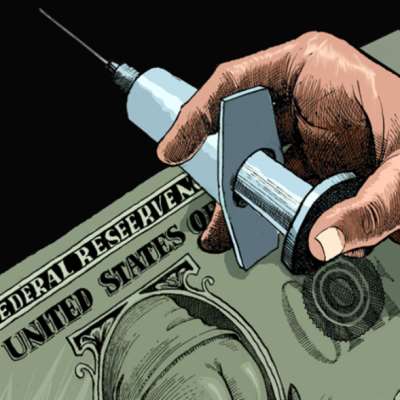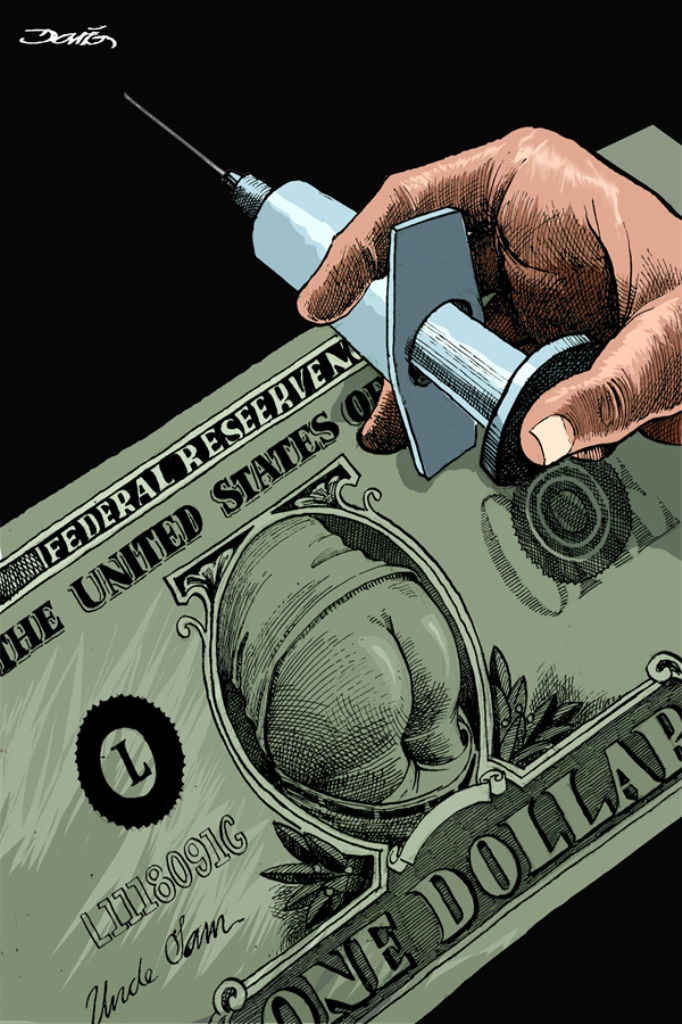
[ad_1]
Some of the most famous economists ridiculed this system and predicted that it would fail. In fact, in 1971, the price of the dollar deteriorated (even against the Lebanese pound), its link to gold loosened, and the global financial system abandoned this deal. Lebanon at that time refused to adhere to this agreement. Rather, it was one of the only countries that was convinced of the benefits of the flexible exchange rate and realized the harm that could result from the fixed price system. Lebanon became an example of wise exchange rate management. Even during the tough civil war, and despite the massive depreciation of the Lebanese pound and the loss of most of its reserves by the Banque du Liban, confidence in the banks continued, and the latter pledged the rights of depositors, because the free exchange rate of the lira at that time was changing immediately to achieve equilibrium in the foreign exchange market. Those who had deposits in banks in dollars did not lose confidence, because they knew that they could obtain their deposits at the market rate.

Dario Castillejos – Mexico
However, Lebanon has deviated from the philosophy of the free exchange rate and replaced it with a fixed exchange rate policy with a government decision since 1997. The negative impact of this alternative policy is gradually weakening the Lebanese economy and transforming it from an economy that supports local production to a “rentier” economy that supports consumption, especially imports. The economy has lost its competitive edge even in tourism. Fiscal and economic policies did not compensate for it, but rather exhausted it and directly contributed to the deterioration of its performance and the performance of its balance of payments.
The fixed exchange rate creates the illusion that the economy is doing well given the low prices of imported goods and services. On the other hand, the liberalized exchange rate of the Lebanese pound plays a different role, preserving the competitiveness of the economy and its real production and being a “barometer” of the performance of the economy. When public sector policies, as well as those of the private sector, are wrong, weak performance is reflected in the depreciation of the exchange rate and is a clear indication of the immediate need for reform to return to the right policies. Thus, we see that successful economies follow a policy of free or flexible exchange rates, especially after the failure of the Bretton Woods system. To avoid exceptional fluctuations, the role of central banks is reduced by maintaining a gradual change in the exchange rate by cooperating with fiscal policy in managing local currency liquidity.
Therefore, liberalizing the exchange rate becomes a necessity because we cannot go back by fixing mistakes of the past, the most important of which are the obscene financial deficit and the public debt accumulated over three decades, which left the economy in an abyss until the point that it is not possible to save it without liberalizing the exchange rate and applying it to all goods and services.
The liberalization of the exchange rate (and its unification as an inevitable result) is one of the most important tools of self-reform, with a positive and immediate impact. The liberalized exchange rate benefits local production by restoring the competitiveness of the economy, and creates new jobs in a short period of time that we cannot achieve with external help due to slow implementation and the burden of reimbursement.
The free exchange rate gives an effective role to the monetary policy of the central bank, while the fixed rate limits the ability of the central bank to follow a monetary policy oriented to the sustainable growth of the economy, since it must use its foreign exchange reserves strong to maintain the specified exchange rate. Furthermore, it will not be necessary to store foreign currency, but banks will be allowed to use their assets abroad.
Anyone who thinks that the liberalized exchange rate hurts the economy is wrong, because liberalizing the exchange rate reduces the demand for both imported goods and dollars.
Whoever thinks that the liberalized exchange rate hurts the economy is wrong. Exchange rate liberalization reduces the demand for both imported goods and dollars. The exchange rate is expected to improve after liberalization, but this issue requires the following two factors:
First: Achieve financial equilibrium as soon as possible, because the fiscal deficit leads to a deficit in the balance of payments and the waste of reserves, and continue to exert negative pressure on the exchange rate.
Second: That the Banque du Liban issue bonds in Lebanese pounds on its own (not on the account of the Lebanese state) in order to authorize it to limit fluctuations in the exchange rate against the dollar if they arise, buying or selling its bonds in pounds and determining its interest by the discount rate on the face price of the bond. This means controlling the exchange rate by controlling the supply of the pound, not the dollar.
The rise in the prices of subsidized goods after exchange rate liberalization will support the economy in a short period of time, since it will stimulate the production of products that were subsidized, such as many food and medicines.
Most importantly, the exchange rate liberalization policy will result in an end to waste through the cessation of untargeted subsidies exported abroad. If we want to support those in need, this can be achieved by issuing credit cards or coupons that only allow the purchase of goods that the country wants to support. In any case, the goal should seek to provide drugs rather than being cheap and unavailable as is the case with the current support policy.
Exchange rate liberalization will eliminate the need to use real cash to the current degree, as dependency has largely shifted to “invisible” cash and banks should tend to use credit and debit cards for sterling accounts. and dollars. It is better to rely on the Beirut financial market as a platform to announce the prevailing daily exchange rate.
The state must not stop taking measures to liberalize and float the exchange rate of the national currency. Its effect on the rise in prices will be punctual if it is accompanied by a financial balance. The deterioration of the lira exchange rate is expected to depend on the impact of the reduction in demand for imported goods and services from the public and private sectors.
* President of the Lebanese Economic Association
Subscribe to «News» on YouTube here